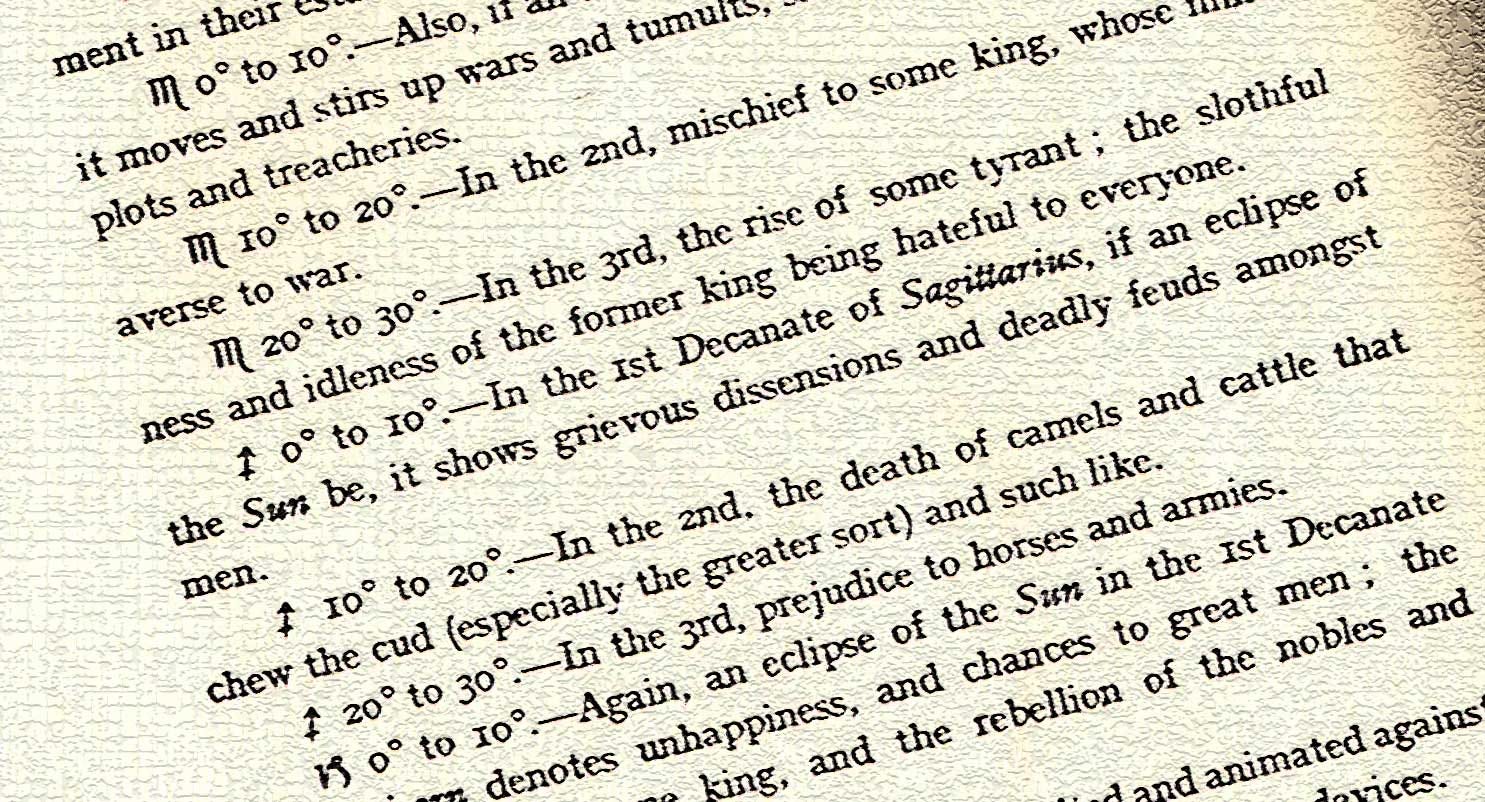
Dear Friend and Reader:
On Wednesday driving to and from Long Island, I was treated to some new poetry on those electric sign boards along the New York State Thruway.
Usually you get gems like, “Click It or Get a Ticket,” “Drive Sober or Get Pulled Over,” or my all-time personal favorite, “One Small Ask: Wear a Mask.”
This time, all the signs were set to, “Arrive Early. Stay Late. Solar Eclipse Mon 4/ 8.” Wow, astrological advice from the Thruway Authority. Either that, or they’re expecting the contemporary equivalent of a Grateful Dead tour to amass along the path of totality, which passes right through upstate New York, on the way to southeastern Canada.
I’m doing my best to visualize a massive festival on the day the Moon passes directly in front of the Sun, turning day into night. While the eclipse path is shorter than the one in 2017, it passes through denser population areas than that event which spanned Oregon to the Carolinas — from sea to shining sea. Many more people will get to experience it.
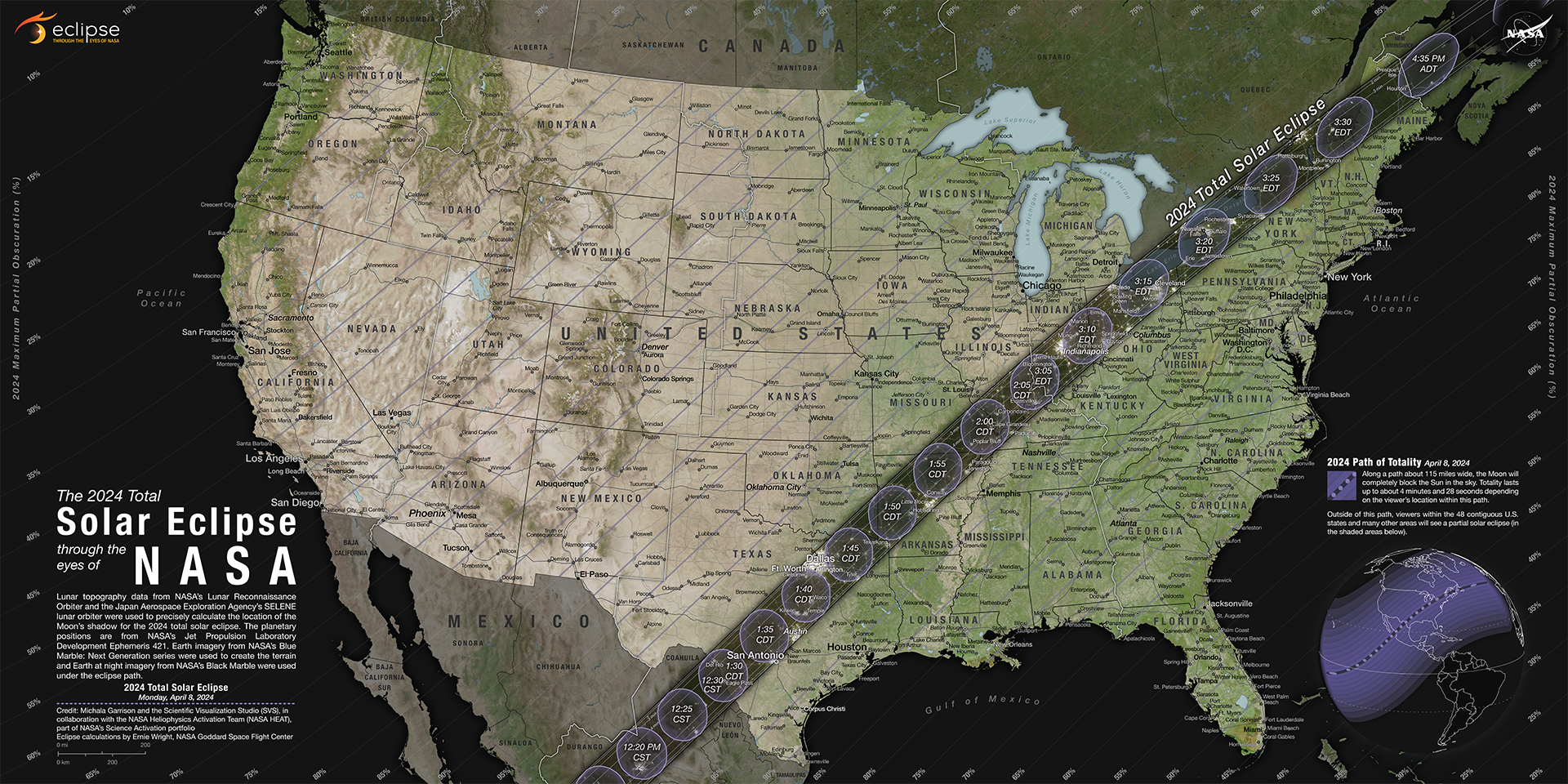
Bigger, Longer, Uncut
Vox, doing something useful, reports that the shadow of totality will be twice as wide as that of the 2017 eclipse, so it will be easier to find a place to view it in any given state. The time of totality — how long the Moon is completely covering the Sun — will also be almost twice as long, at over four minutes in many locations.
“I think even more importantly, 2024 passes over a much bigger population,” Ernie Wright, who works in NASA’s Scientific Visualization Studio, told Vox. “More than twice as many people actually live in the path and don’t have to go anywhere to see it.”
So, twice as wide, twice as long, and more people in the path. Bigger, longer, uncut, as my friends Trey and Matt once quipped.
Here in the age of the “flat Earth,” I think this is a wonderful thing: that people will be responding to something they cannot ascribe to CGI or a fake psychological operation. (Flat Earthers believe there is something called the “eclipse object,” which I try to politely remind them is the Moon.)
Try as we may to separate ourselves from nature, people and all critters are affected or at least influenced by natural events.
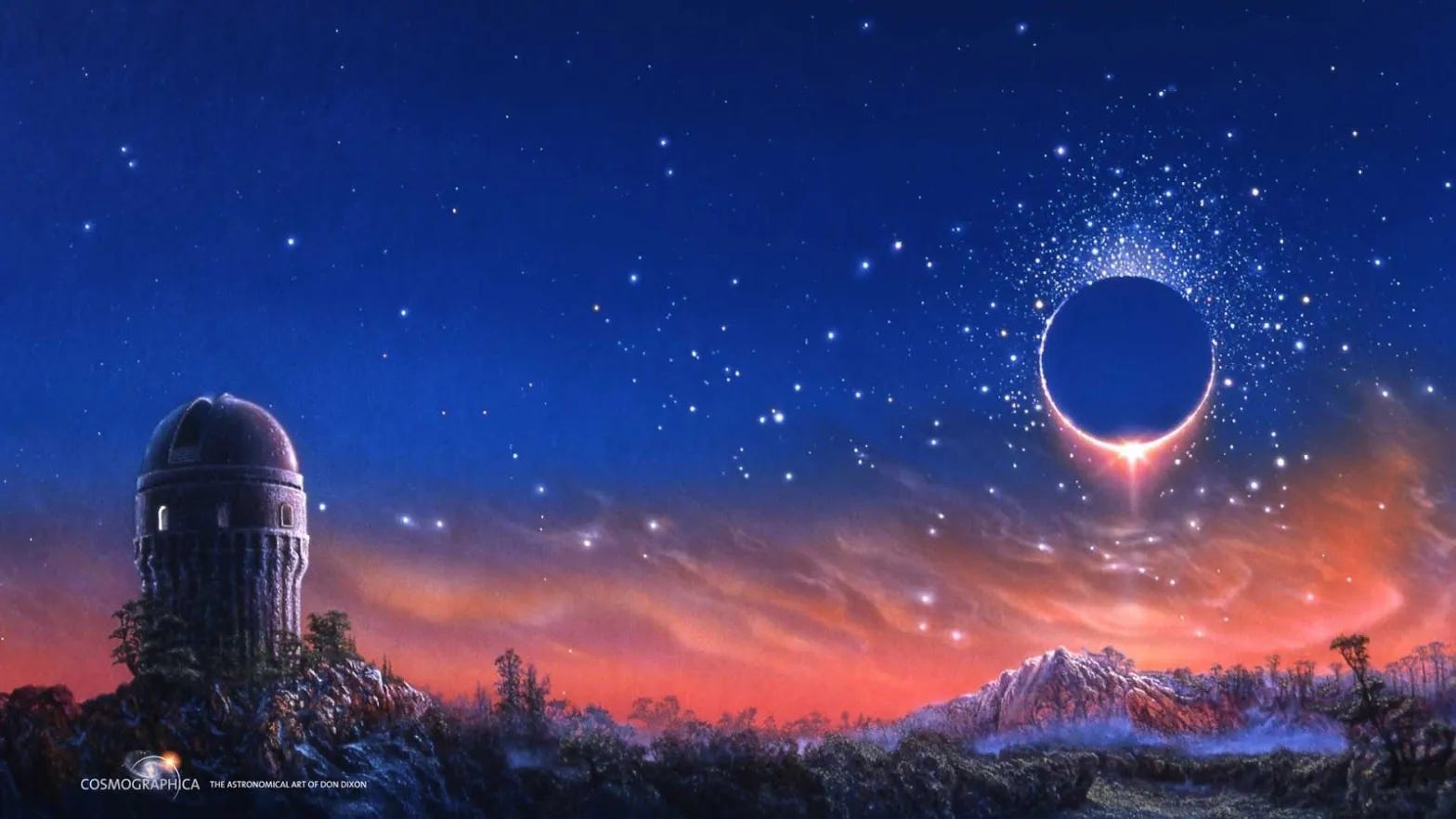
Nightfall by Asimov: Allegory of Light and Dark
When he was 21 and a grad student in chemistry at Columbia University, a bright young man named Isaac Asimov wrote what has become one of the most renowned of all science fiction stories, called Nightfall.
Published in 1941, it’s set on a planet called Lagash (Kalgash, in a rewrite) that is lit by multiple suns, where it never gets dark. With six suns, all of the planet is turned toward at least one of them at all times. The planet’s only moon is invisible because it’s drowned out by sunlight all the time.
Experiments have been done that prove that Lagashians can experience permanent mental illness after exposure to just 15 minutes of darkness.
Historians and archeologists there know that the history of Lagash runs in cycles of about 2,000 years. They’ve uncovered evidence of nine of those civilizations. Explanations exist in the myths of a doomsday cult called Book of Revelation, which also says that when it gets dark, these things called “stars” allegedly appear.
These predictions are not taken seriously until astronomers figure out that, very soon, all of the suns will be eclipsed. They calculate that this imminent event takes place every 2,049 years and lasts about half a day.
So afraid of the dark are people, and so terrified are they by the sight of the universe beyond what they know — that each time an eclipse happens, they all go insane and light their civilization on fire. Even the scientists go insane, as people come from the city to destroy the observatory.
The story is an interesting inversion of Plato’s Allegory of the Cave, where people are permanently confined to a dark cave facing a blank wall, seeing only their own shadows projected in front of them.
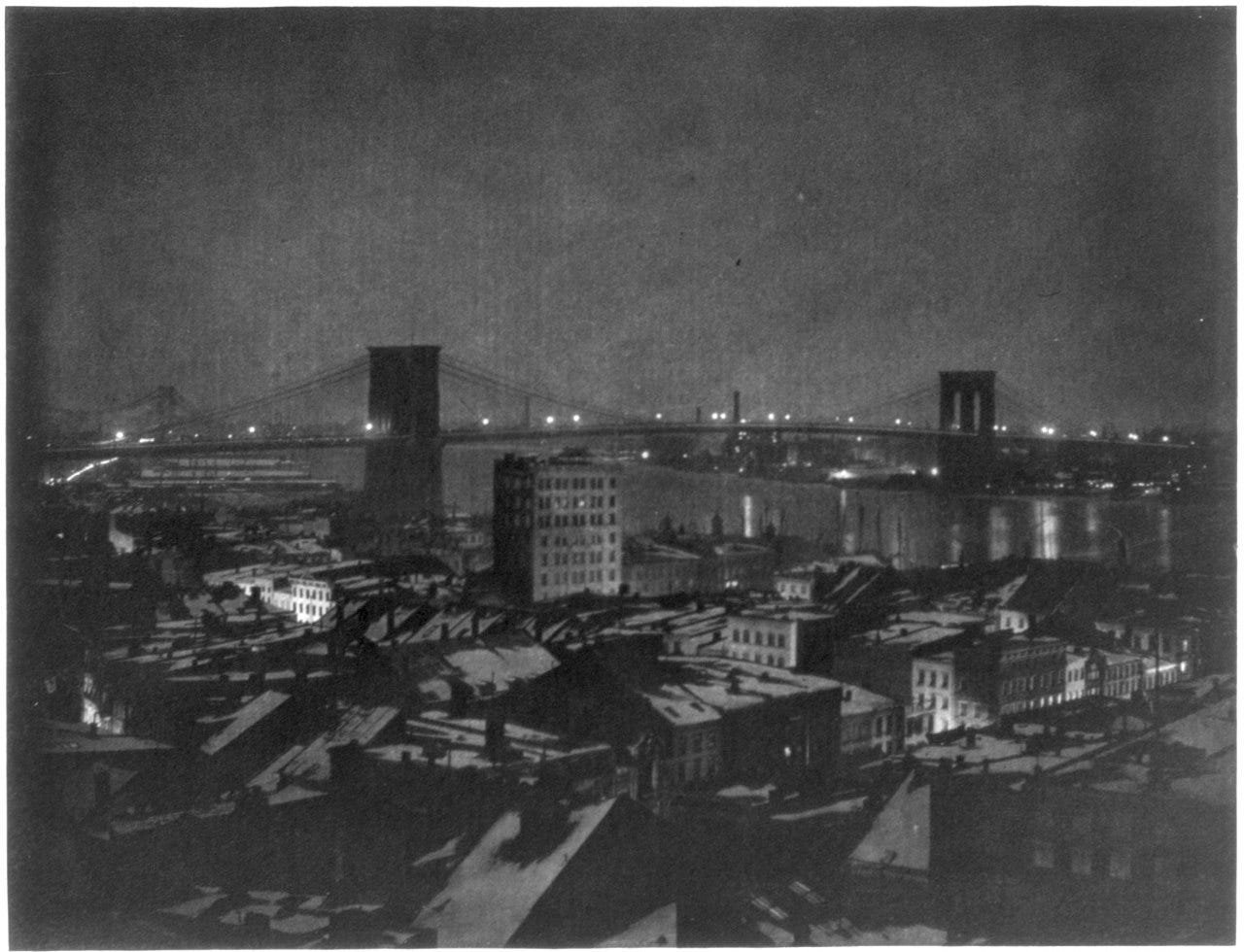
Is That Astrology?
Is Asimov’s story of the great eclipse on Lagash an example of astrology?
As is true for most men and women of science, I reckon that Asimov didn’t have much use for astrology. (According to data master Lois Rodden, Asimov did not know the date of his own birth, much less the time. That is extremely rare.)
He once wrote, “The vast majority, who believe in astrology and think that the planets have nothing better to do than form a code that will tell them whether tomorrow is a good day to close a business deal or not, become all the more excited and enthusiastic.”
Excited and enthusiastic about what, I’m not sure (it may have been an eclipse). He may have been lucky and didn’t close deals during Mercury retrograde. But in one of his most famous stories, he demonstrates an astrological influence — though exaggerated for a satirical effect.
He associates an eclipse of the Sun with a transformational moment, a before-and-after event — even if people use that occasion to turn their whole society into a bonfire. Their minds are influenced even by the mere sight of the stars. No code is necessary.
In our moment on Earth, many of us live in a time when there is no darkness. It’s amazing to think that this was not true even in 1900, when the best you had were gas or oil lamps illuminating the streets in populated areas. The same was true inside homes.
Today, we live in a time of around-the-clock illumination, and communication, which is an equivalent of the never-setting Sun. And we live on the verge of insanity, with many people getting restless if they are away from a device for 15 minutes. Today’s science fiction might speculate about what would happen in the event of a global internet outage that lasted some days or weeks: a digital eclipse.

An Eclipse is a Natural Psychological Event
Relatively few people get to see an eclipse in their lifetime, though eclipses seem to resonate through the collective mind even for those who are not there. The sense of acceleration, karmic events, strange developments, and a before-and-after moment are all observable.
Traditional astrology does not have kind things to say about eclipses. In his Complete Dictionary of Astrology (which only goes up to T, because he died before it was finished), Alan Leo lists a diversity of effects of solar eclipses: famines, pestilences, deadly seditions, destruction of businesses, disturbances to air and weather, contempt of the law (of both God and man), anxieties to kings and magistrates, movements of armies, and so on.
You get the idea. One might surmise that Asimov had studied Alan Leo before writing his article. But he may have been picking up on an innate fear, something primal: the Sun going out at the break of noon.
Psychological (also called humanistic) astrology (which I think begins with Dane Rudhyar in the 1930s) takes a more broad-minded view. While there are various “darkening of the light” metaphors, eclipses are seen as moments of personal transformation. They are opportunities for growth.
I see them as points of reckoning where, like with Chiron transits, you have an opportunity to catch up with yourself. Solar eclipses have the feeling of passing through “eye of the needle.” Lunar eclipses offer the experience to live through a month in a few hours, as the Moon’s phases go from full to new and back to full as it passes through the Earth’s shadow.
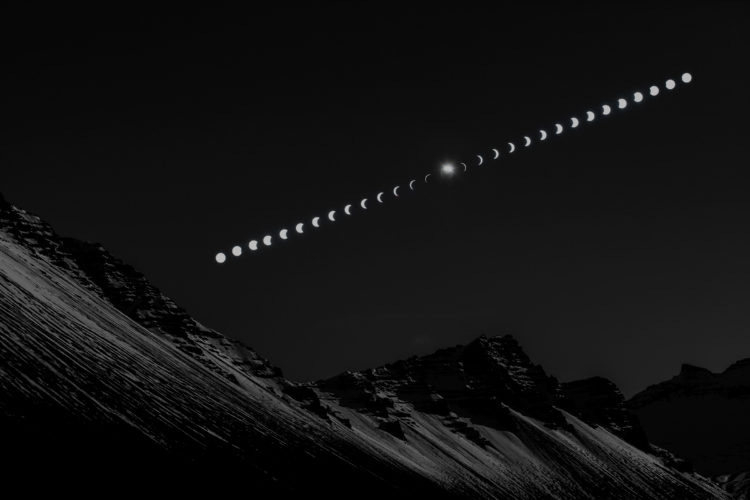
One Last Property of Eclipses
There is one last property of eclipses — perhaps the most relevant — that I learned from my old friend Dave Roell at the Astrology Center of Southern California. He was the owner of a mail-order bookshop and he would tutor me for an hour every night during the winter of 1994-1995.
Dave suggested that eclipses are pattern-setting events. Therefore, do what is important to you and what you love the most the day of an eclipse. If you hang out with people, be with those you want to be around.
Similarly, don’t do what you don’t want to continue. Take the opportunity to shift your energy out of any patterns that are not working for you, and do what you want.
I don’t know how these things work. But I’ve experimented with them enough to know that they do. Astrology is not just the planets speaking in a code. Asimov was right about that much, even if he didn’t think it was very likely. It’s about our experience of existence on Earth, and the shape of our collective body in the solar system.
Like most of what we perceive, astrology is a reflection of who we are. There is a reason that it exists in every culture around the world, including societies that had no contact with one another.
It’s about something innate in consciousness, and the power of metaphor, which I suspect may be the same thing.
We are part of that; it is us and we are it. That’s enough information for me to treat the whole enterprise with respect.
With love,




